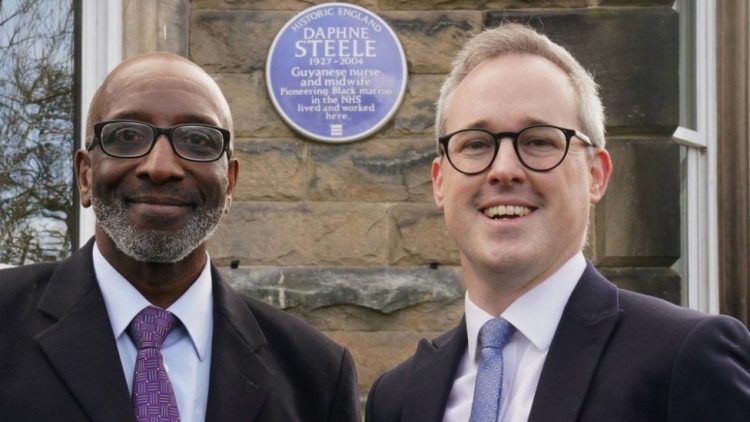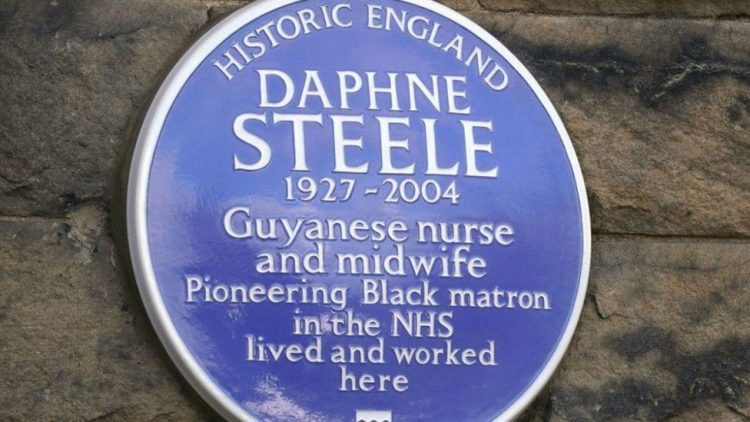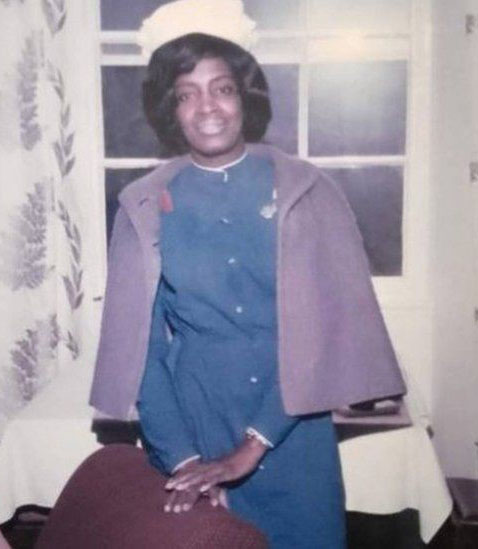(BBC) The woman credited as the “first black matron” in the UK National Health Service (NHS) has had her achievement marked with the first official blue plaque outside of London.
Daphne Steele has been honoured at the former St Winifred’s maternity home in Ilkley, West Yorkshire.
Originally from Guyana, Ms Steele arrived in the UK in 1951 and enrolled on a nursing course in south London.

Her son Robert Steele said she would be “speechless” to see that a blue plaque had been dedicated to her.
The plaque was unveiled by Lord Parkinson, arts and heritage minister, as part of a roll out of the official Historic England scheme.
It reads: “Daphne Steele. 1927-2004. Guyanese nurse and midwife. Pioneering black matron in the NHS lived and worked here.”
Mr Steele, who attended the unveiling, said: “My mother saw herself as a nurse and midwife.
“As far as she was concerned, she was just getting on with her job.

“She would be speechless, mind-blown, to see a plaque dedicated to her and to know that she had made such a difference to so many people.”
Ms Steele enrolled on the course at St James’s Hospital in Balham and graduated two years later.
She then undertook midwifery training in 1954 and worked in America, Oxfordshire and Manchester.
Her appointment as matron in 1964 attracted national attention and acted as a turning point in the history of the NHS.
Ms Steele became a matron at St Winifred’s maternity hospital in Ilkley with a reported salary of £1,230 per year – today’s equivalent would be £20,733.
Chief Nursing Officer Dame Ruth May called her “an inspiring woman”.
She added: “Daphne had a remarkable career in nursing, midwifery and as a health visitor, and like so many from the Windrush generation, she made an enormous contribution to the NHS.”
When St Winifred’s closed in October 1971, Ms Steele found a new job working at Wharfedale children’s hospital in Menston and then retrained as a health visitor at Leeds University.
She also worked as a health visitor in Ilkley and Bingley and recalled to her local newspaper in 2001 that after her appointment as a matron she received “about 350 letters from around Britain and around the world”.
Lord Parkinson said Ms Steele “delivered hundreds of babies a year” and paved “the way for so many others from a wide range of backgrounds to play their vital role in that cherished national organisation.
Historic England Chief Executive Duncan Wilson called Ms Steele “a “quiet revolutionary” who changed history.
The official Historic England blue plaque scheme had been London-only since its introduction in 1866 with other initiatives delivering the commemorations locally.
But it was announced last September that the scheme would be expanded so people could nominate figures from their communities who had helped define the areas where they live.




